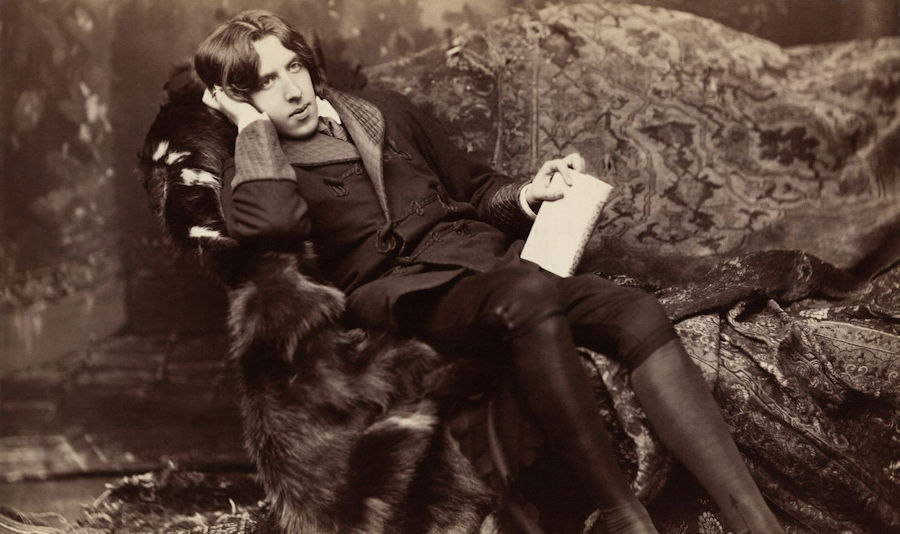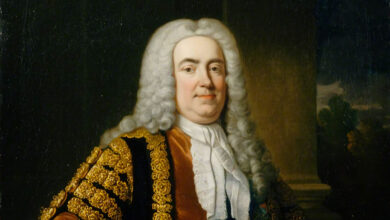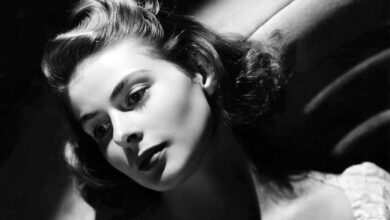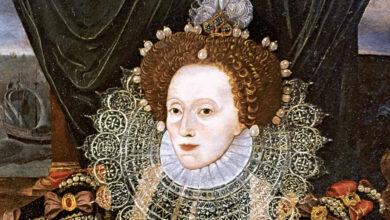
Podcast: Play in new window | Download
Subscribe: Spotify | Amazon Music | Youtube Music | RSS
“There is only one thing in life worse than being talked about, and that is not being talked about.” – Oscar Wilde
Oscar Fingal O’Flahertie Wills Wilde was born on 16 October 1854 in Dublin Ireland to parents Sir William Wilde, Ireland’s leading oto-ophthalmologist (that is a specialist in ear and eye conditions) and his wife Jane who was a lifelong Irish nationalist and poet. Oscar was the second of three children having a brother who was two years older than he called William and a younger sister called Isola who was born in 1857.
For the first nine years of his life, Oscar was educated at home and was even able to learn French from his nursemaid and German from his governess, but in 1865 he joined his brother at Portora Royal School in Enniskillen where he studied until 1871. Whilst there he impressed his peers with his ability to speed read and excelled in the classics winning multiple prizes for translating Latin and Greek texts. Ultimately, he was one of only three students to receive a Royal School scholarship to Trinity College. Unfortunately though, during his time at Portora Oscar’s sister died at the age of only nine after contracting meningitis.
He shared rooms with his brother whilst he studied classics at Trinity College in Dublin for the next three years, with a particular interest in Greek literature after being inspired by his tutor Professor Mahaffy. Whilst there, Wilde also became an active member of the University Philosophical Society where members discussed artistic and intellectual subjects. He was an outstanding student and was first in his class in year one, winning the Berkeley Gold Medal in Greek in his finals. He also competed for and won a half-scholarship to Magdalen College, Oxford, where he continued his classical studies between 1874 and 1878.
Whilst at Magdalen, Wilde became interested in Freemasonry, being attracted by the secrecy and rituals involved. By his third year, he had risen to the rank Master Mason although his interest only lasted whilst he was at Oxford. He also became involved in the aesthetic and decadent movements during his Oxford years, wearing his hair long and decorating his room with peacock feathers, lilies and sunflowers. In November 1878, Wilde graduated from Oxford with a double first in his B.A. in the classics.
Whilst spending time in London in 1881, Wilde was introduced to Constance Lloyd, the daughter of a wealthy Queen’s Counsel and the pair became reacquainted when she happened to be visiting Dublin in 1884 where Wilde was lecturing. He proposed and the couple were married at St. James’ Church in Paddington, London on 29 May 1884. They went on to have two sons, Cyril in 1885 and Vyvyan in 1886, but after Vyvyan’s birth, the marriage started to fall apart after Wilde discovered homosexual sex having been seduced by a young man called Robert Ross.
Wilde had been regularly producing fairy tales for magazines and published The Happy Prince and Other Tales in 1888, following this with two more collections, Lord Arthur Saville’s Crime and Other Stories and A House of Pomegranates which was dedicated to Constance in 1891.
One of the stories published in the July 1890 edition of Lippincott’s Monthly Magazine became one of his most famous titles. The Picture of Dorian Gray tells the story of a man who makes a deal with the devil so that only the image in his portrait gets old while he in real life retains his youthful beauty. At the time though, the story was criticized for its obvious decadence and homosexual allusions with The Daily Chronicle going as far as calling it unclean and poisonous. Although Wilde defended the story, he nevertheless revised it before it was published in book form in 1891.
During this time, Wilde was introduced to Lord Alfred Douglas, the son of the Marquis of Queensberry and the two began an intimate relationship with Wilde becoming infatuated, indulging Douglas’s every whim.
Fame and fortune started to come Wilde’s way following the publication of three comedies, Lady Windermere’s Fan, An Ideal Husband, and The Importance of Being Earnest. The latter is considered Wilde’s masterpiece and is his final play. It was written rapidly in 1894 and was first performed at the St. James’s Theatre in London on 14 February 1895.
Four days later, the Marquis of Queensberry accused Wilde of being a sodomite. Wilde sued for libel, against the advice of his friends but the trial opened at the Old Bailey on 3 April 1895. To avoid up to two years in prison it was incumbent upon the defence to prove that the alleged libellous statement was actually true and so the Marquis of Queensberry hired a team of detectives to find evidence of Wilde’s homosexuality. The evidence they gathered was presented in court and subsequently, salacious details of the private lives of Oscar Wilde and Lord Alfred Douglas were published by the press.
Acting on advice from his lawyers Wilde dropped the case and the Marquis of Queensberry was found not guilty of libel. Unfortunately, this also meant that Wilde was liable for all court costs, which left him bankrupt.
On 6 April 1895, Wilde was arrested on gross indecency charges. Court proceedings began on 26 April and although the jury was unable to reach a verdict, at another trial which took place the following month, Wilde was found guilty and was sentenced to two years hard labour, the maximum allowed.
Wilde served time first in Newgate Prison followed by Pentonville and Wandsworth. The hard labour part of his time served contributed significantly to a decline in health, spending two months in the infirmary at one point due to a fall, during which he suffered a ruptured eardrum. On 23 November 1895, he was transferred to Reading Gaol where he served the remainder of his sentence. He was released from prison on 19 May 1897 and sailed to Dieppe, France on the same day, never returning to the UK.
During his last three years, Wilde was impoverished and although she refused to meet him or allow him to see his sons, Constance sent him money, amounting to around three pounds per week. He did spend some time with Robert Ross during 1897 and was even reunited with Lord Douglas later the same year before the pair were split apart by their families.
What little money Oscar Wilde had he spent on alcohol and he wandered the boulevards of Paris alone.
On 12 October 1900, he sent a telegram to Robert Ross which read “Terribly weak. Please come. “. Ross arrived on 25 November by which time Wilde had contracted meningitis. Ross sent for a priest and Oscar Wilde was baptized into the Catholic Church. He died on 30 November 1900 at the age of only 46. On 14 February 1995 Wilde was commemorated with a stained-glass window at Poets’ Corner in Westminster Abbey and in 2017, he was one of approximately 50,000 men who received a posthumous pardon for convictions related to homosexual acts, which, under the Policing and Crime Act 2017, were no longer considered offences.
Podcast: Play in new window | Download
Subscribe: Spotify | Amazon Music | Youtube Music | RSS




